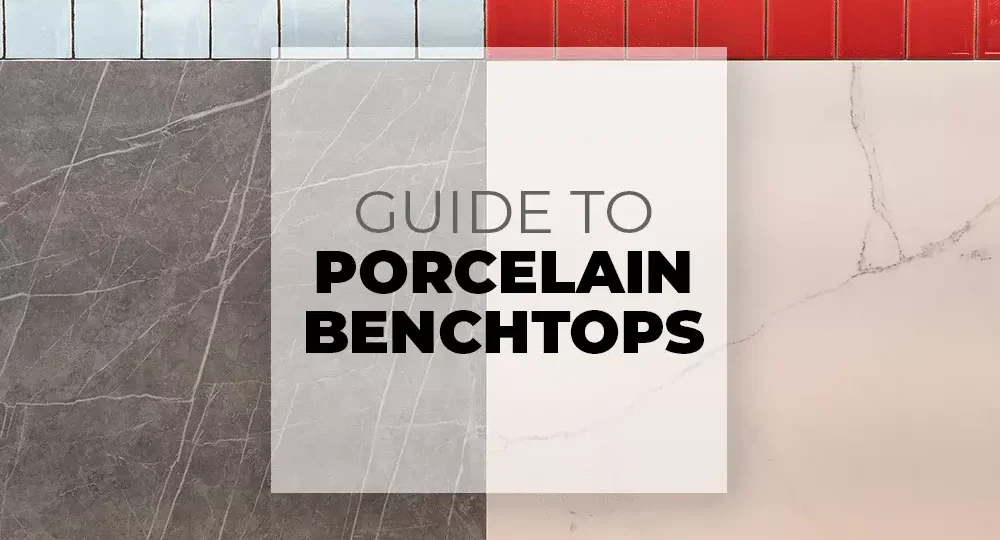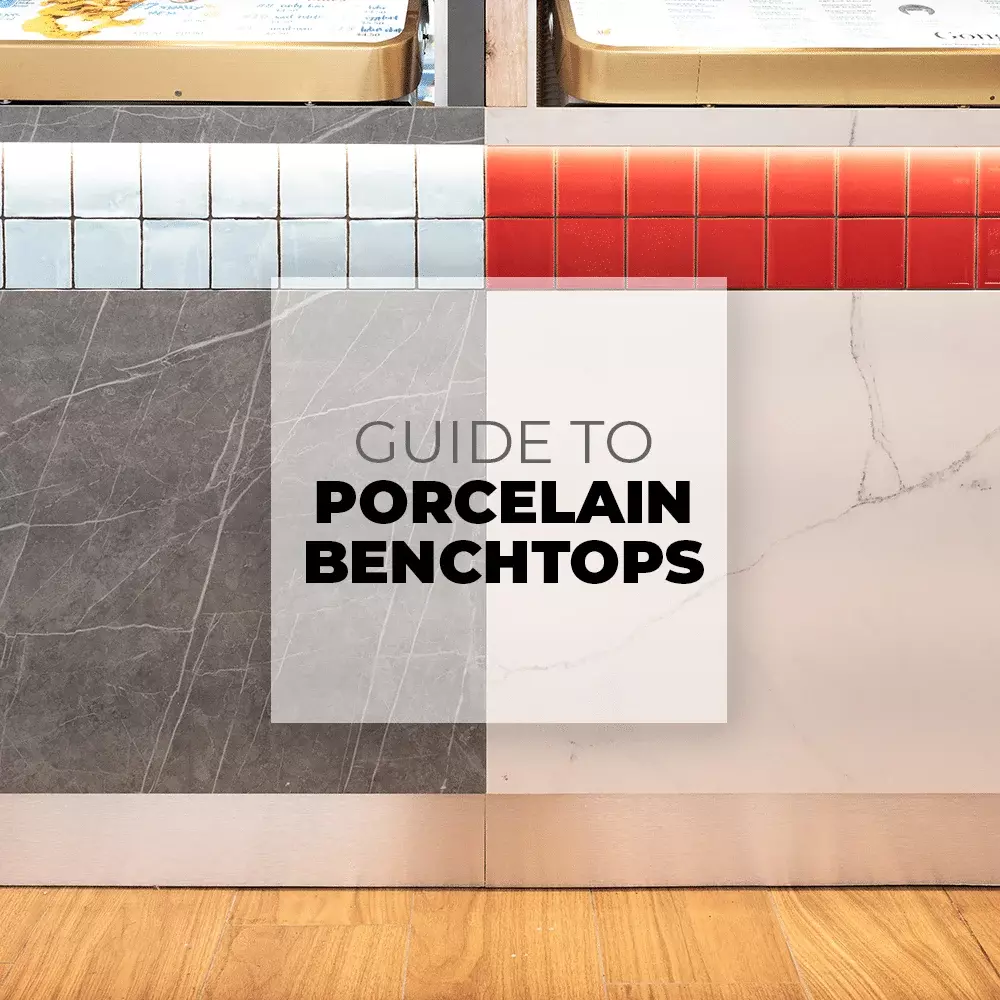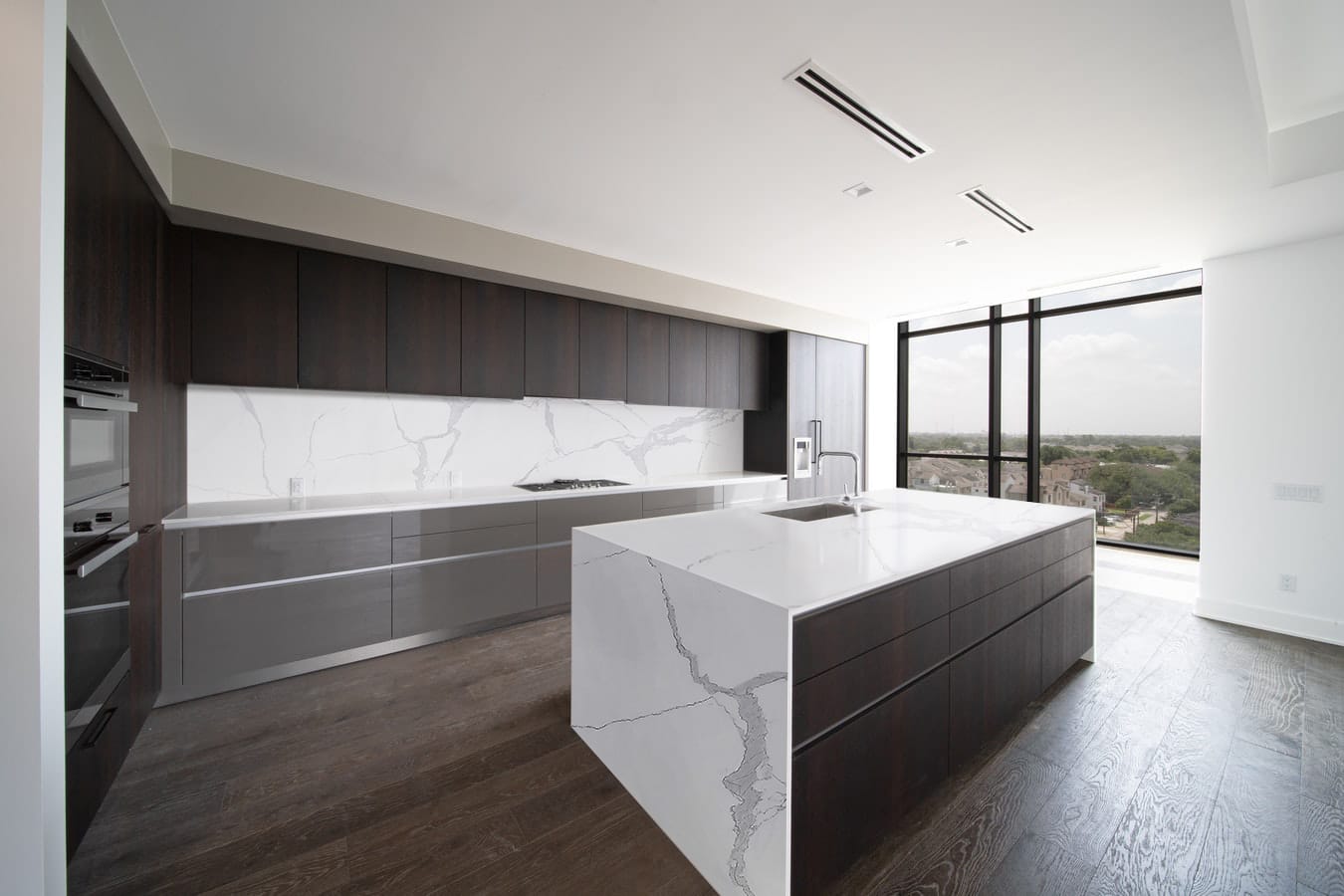
A Designer’s Guide to Porcelain Benchtops
There’s a reason why porcelain benchtops have become one of the most sought-after benchtop materials in Australia. But what exactly is porcelain and why is it a go-to in the world of kitchen design in particular?
This guide tells you everything you need to know about porcelain benchtops.
What is porcelain?
Porcelain is a ceramic material composed of various materials including clay, metals, powders, minerals, and glass pigments among others. The process of making porcelain was discovered in China over two thousand years ago, which involved using a baking process to bond the materials together to create a hard and glass-like stone material. Because porcelain is ultra-compact, it’s also known as a sintered compact surface.
How are porcelain benchtops made?
The process of creating porcelain has evolved over time with advanced engineering and technology, allowing us to create large porcelain slabs and panels. This process is called sintering, whereby powdered clay, colored pigments, and other raw materials are fused together using extreme pressure and heat. This accelerated process creates a non-porous, extremely hard, and virtually indestructible surface that offers all the qualities you need for the perfect benchtop surface.
Because porcelain is composed of many fine particles, porcelain slabs and panels can be formed with different textures ranging from smooth to bumpy. They can also have designs printed onto the surface to mimic materials such as marble, concrete, and limestone.
What are the benefits of porcelain benchtops?
Porcelain benchtops share the same benefits as other engineered stones, but also offer other advantages that you can’t find in other stones.
It’s pretty much indestructible
The sintering process used to make porcelain slabs make it extremely dense, hard and scratch-resistant. It also has high density and low porosity, making it highly resistant to stains and absorbing liquid – an excellent choice for kitchen benchtops where hygiene is a priority.
It’s chemical resistant
There’s no need to worry about damage and stains from chemicals and acidic liquids – great for splash-proof areas.
It’s UV resistant
Porcelain has a high resistance to UV light, so you don’t have to worry about outdoor BBQ tiles and benchtops fading in direct sunlight.
It’s versatile and beautiful
Porcelain panels and tiles are great for use as surface cladding. Whether it’s on walls, doors or kitchen cupboard fronts, porcelain tiles provide the practicality you need in a quality surface and the beauty to create a space you truly love.
What can porcelain panels be used for?
The benefits of porcelain make it an excellent contender for a range of applications, including:
- Wall panels
- Kitchen benchtops
- Flooring with heavy traffic
- Exterior cladding
- Outdoor flooring
- Bathroom walls and wet areas
At Avant Stone, we use SinTerra porcelain slabs which offer designers the perfect combination of functionality and natural beauty. Come and view our stunning range of porcelain slabs on display in our Showroom.



